|
|
Post by linefacedscrivener on Jan 14, 2021 9:22:08 GMT -5
 San Jacinto San Jacinto By Robert E. Howard Flowers bloom on San Jacinto, Red and white and blue. Long ago o'er San Jacinto Wheeling vultures flew. Long ago on San Jacinto Soared the battle-smoke; Long ago on San Jacinto Wild ranks smote and broke. Crimson clouds o'er San Jacinto, Scarlet was the haze-- Peaceful o'er calm San Jacinto Glide the drowsy days. The above 1895 painting is by Henry Arthur McArdle (June 9, 1836 – February 16, 1908) and I think it adequately captures Howard's phrase "Wild ranks smote and broke." It hangs in the Senate chamber at Texas State Capitol in Austin, Texas. |
|
|
|
Post by linefacedscrivener on Jan 15, 2021 12:46:33 GMT -5
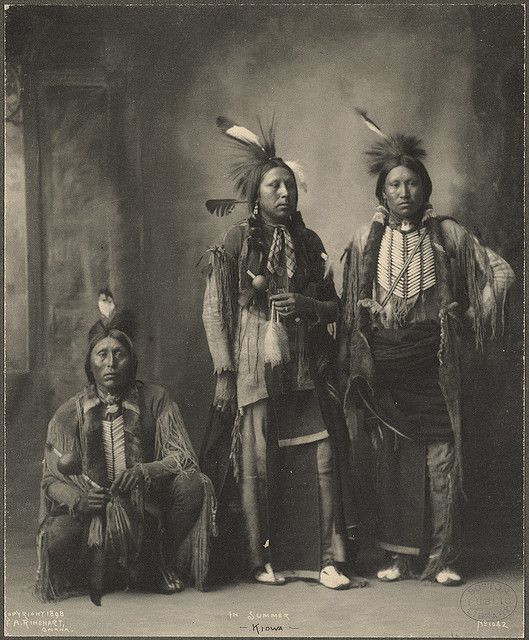 The Kiowa's Tale The Kiowa's Taleby Robert E. Howard All day I lay with the sun at my back As a serpent lies with a changeless stare, My fierce eyes fixed on the single track That led from the woods to the cabin there. All day, that long late summer day Green leaves rustled above my head And startled song birds flitting that way Glimpsed the glint of my steel and fled. Slow sank the sun and the woods were still-- Afar there whispered a steamlet's croon-- Long had I waited to make my kill And the branches murmured, "Soon, ah, soon!" He came at dusk, through the twilight red With the loose long stride of swinging hips And I drew the shaft to its gleaming head, And the scalp-yell hovered upon my lips. Fair of mark in the fading day-- My fingers quivered upon the shaft, My red soul leaped with the lust to slay, My breath came swift--when a woman laughed. From out the cabin she came to him, Straight and slight as an eagle's feather. I saw them kiss in the twilight dim I heard them laugh--as they laughed together. From the notch unheeded slipped the cord, Breaking the arrow--it fell in half. The moon came up like a golden lord; As I stole away I heard them laugh. Howard mentions the Kiowa in his letters, usually in association with either the Comanches or all the Texas Indian tribes. Again, as Howard was always fascinated with the Barbarian and life on the frontier, he was equally fascinated by the Indian tribes. The following is a short video providing some background on the Kiowa: |
|
|
|
Post by linefacedscrivener on Jan 18, 2021 13:47:21 GMT -5
 The Cowboy The Cowboyby Robert E. Howard Poets and novelists have sung of me; Made me a bronzed-faced Centaur, leather-girt. The real man they all have failed to see; A weary, ignorant man in an unwashed shirt. I like the following video asking cowboys, "What is a cowboy?" |
|
|
|
Post by linefacedscrivener on Jan 19, 2021 14:50:52 GMT -5
“Texas feuds were short and bloody. They did not, as in Kentucky, drag on through the generations. The Sutton-Taylor, and the Lee-Peacock feuds were probably the most famous.”
—Robert E. Howard to August Derleth, March 1933
I posted some time ago about the Sutton-Taylor Feud, but I came across a new exhibit related to the feud at the Texas Ranger Museum in Waco, Texas. I posted the video above. If you ever are in Texas, and particularly in Waco, I highly recommend a visit to this museum (and the Dr. Pepper Museum). I think it is one Howard would have appreciated.
|
|
|
|
Post by linefacedscrivener on Jan 21, 2021 15:53:40 GMT -5
"I love Texas so much that I wish I’d had a hand in building the present greatness of the State."
-Robert E. Howard to H.P. Lovecraft, May 13, 1936
Howard wrote that to Lovecraft just one month before he committed suicide. Two years later, Karl Hoblitzelle chaired the Texas World's Fair Commission. To highlight the "greatness of the State," he commissioned a Hollywood-like video, using the very new Technicolor, capturing the status of Texas in 1938. It is interesting to watch it and consider this was, roughly speaking, the status of Texas at the time of Howard's death. Though you can jump around, settle in if you wish to watch the entire video, it is 49 minutes long.
|
|
|
|
Post by linefacedscrivener on Jan 22, 2021 9:39:07 GMT -5
 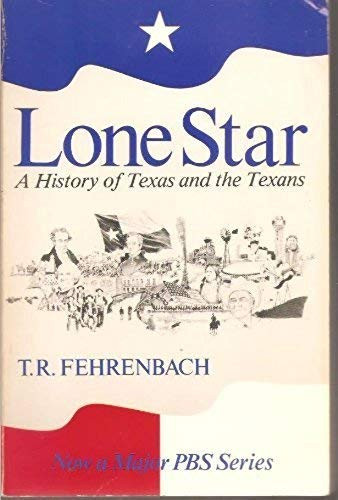 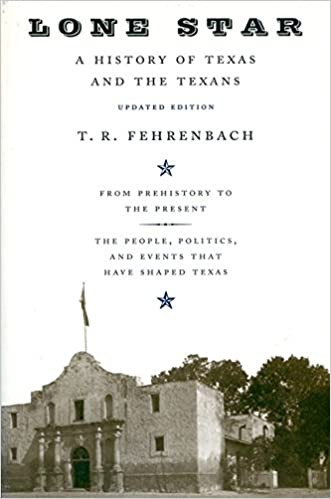 “My own library was generally the largest in the place I lived, but it was small. I generally was given a book on Christmas and on my birthday.” -Robert E. Howard to H.P. Lovecraft, July 1933 As today is Robert E. Howard’s birthday, I was thinking if I could give him a book for his birthday, what book would I get him? Keeping with the An Unborn Empire theme in this little corner of The Swords of Robert E. Howard, I thought the most appropriate book would be one I think he could have (would have?) written. One that would be like his own proposed book, An Unborn Empire—a book about the history of Texas and its people. The book I would like to gift Robert E. Howard on this his birthday is T.R. Fehrenbach’s Lone Star: A History of Texas and the Texans. I also recommend it to all REH fans, and I will share why in coming posts. Happy Birthday, Howard! |
|
|
|
Post by linefacedscrivener on Jan 25, 2021 10:10:18 GMT -5
 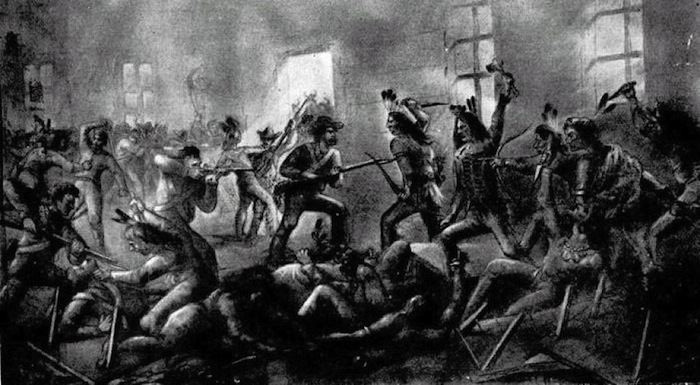 “One objection I have heard voiced to works of this kind – dealing with Texas – is the amount of gore spilled across the pages. It can not be otherwise. In order to write a realistic and true history of any part of the Southwest, one must narrate such things, even at the risk of monotony . . . Authentic history or realistic fiction of Texas must be gory.” —Robert E. Howard to August Derleth, March 1933 One of the reasons I selected Lone Star as the book Howard may have written had he remained alive and pursued An Unborn Empire, is because the attitudes of T.R. Fehrenbach so closely resemble Howard’s. The book has been reprinted and updated many times. Read what Fehrenbach had to say in the “Foreword” to the 2000 edition of his book: “As a construct, history is too often revised to match contemporary views. It has been said that each generation must rewrite history in order to understand it. The opposite is true. Moderns revise history to make it palatable, not to understand it. Those who edit ‘history’ to popular tastes each decade will never understand the past—neither the horror nor glories of which the human race is equally capable—and for that reason, they will fail to understand themselves.” That sounds to me like something Robert E. Howard would have penned. |
|
|
|
Post by Char-Vell on Jan 25, 2021 10:31:46 GMT -5
  “As a construct, history is too often revised to match contemporary views. It has been said that each generation must rewrite history in order to understand it. The opposite is true. Moderns revise history to make it palatable, not to understand it. Those who edit ‘history’ to popular tastes each decade will never understand the past—neither the horror nor glories of which the human race is equally capable—and for that reason, they will fail to understand themselves.” I need to bookmark this quote. rewriting history to make it "palatable" is something that crops up quite often. |
|
|
|
Post by linefacedscrivener on Jan 25, 2021 15:40:10 GMT -5
  “As a construct, history is too often revised to match contemporary views. It has been said that each generation must rewrite history in order to understand it. The opposite is true. Moderns revise history to make it palatable, not to understand it. Those who edit ‘history’ to popular tastes each decade will never understand the past—neither the horror nor glories of which the human race is equally capable—and for that reason, they will fail to understand themselves.” I need to bookmark this quote. rewriting history to make it "palatable" is something that crops up quite often. Glad you found it useful - it is a good quote. I think it sums up one aspect of what Howard was trying to convey to Lovecraft and Derleth regarding Texas history, and it is just one example of why I think Fehrenbach is Howard's kindred soul. More coming. |
|
|
|
Post by linefacedscrivener on Jan 26, 2021 9:32:39 GMT -5
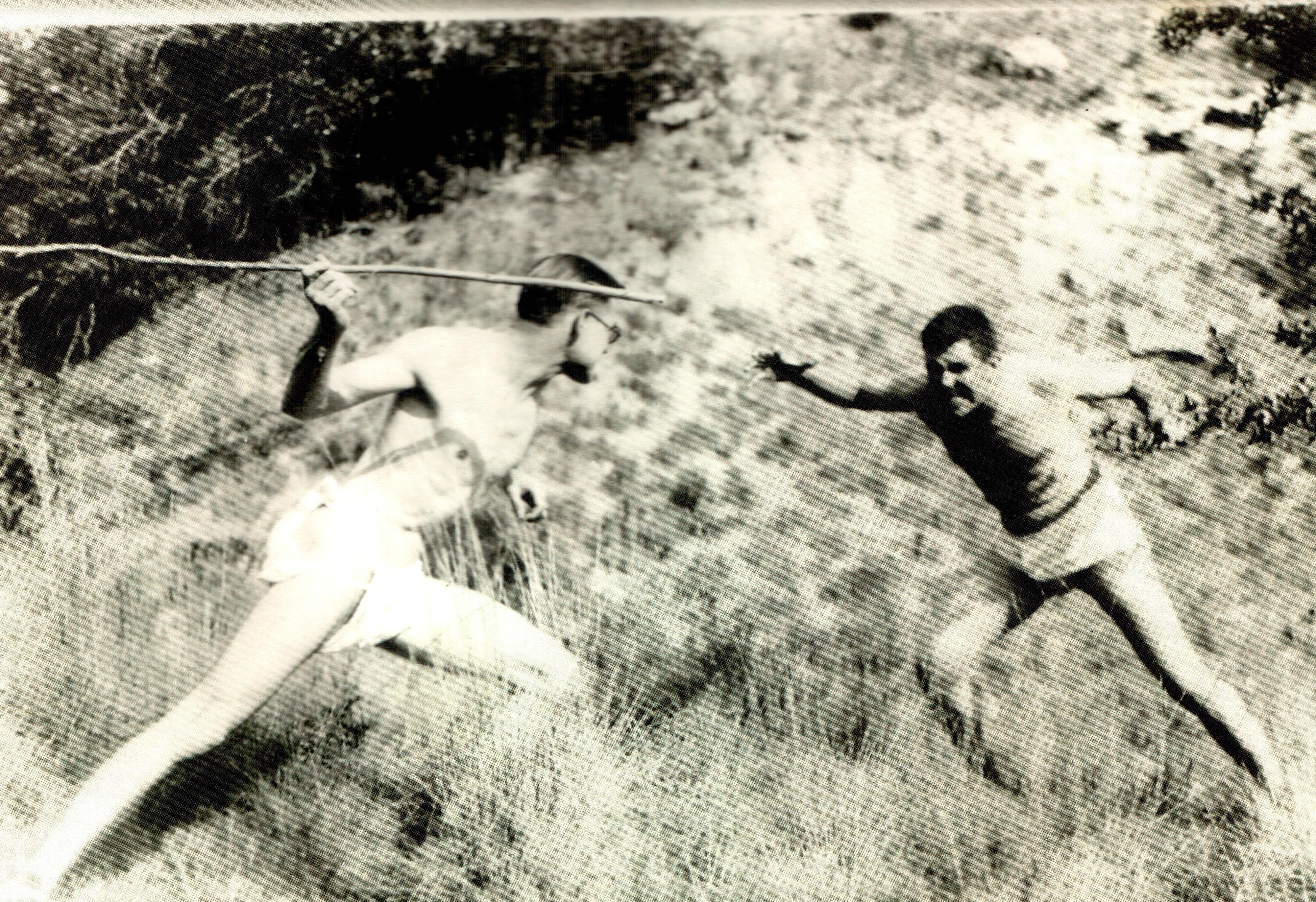 “I have no idyllic view of barbarism—as near as I can learn it’s a grim, bloody, ferocious and loveless condition. I have no patience with the depiction of the barbarian of any race as a stately, god-like child of Nature, endowed with strange wisdom and speaking in measured and sonorous phrases. Bah!” —Robert E. Howard to H.P. Lovecraft, November 2, 1932 In Lone Star, T.R. Fehrenbach echoes Howard’s sentiment when he writes in the first chapter, “Civilized men, caught in their modern traps and pressures, have often looked longingly toward the seeming freedom, and barbaric majesty, of the Stone age, nomadic Amerind male.” Like Howard, he explains why the civilized person is wrong by conveying the raw truth when he stated succinctly “the warrior had to hunt and fight.” Fehrenbach then elaborates: “He had to kill the elusive deer, the dangerous bear, and the powerful buffalo with a flint spear, or the tribe went hungry; he had to defend his soil, and—the culture soon demanded it—carry war and raids to the enemy, for women and spoils. He had to prove his courage from the day of manhood until he died, and sometimes prove it while dying.” |
|
|
|
Post by linefacedscrivener on Jan 27, 2021 11:13:49 GMT -5
 "Texas has always been in a period of transition, changing from something to something else. Even before the Anglo-Celts came in from the east, there had been change - priests building missions in the wilderness, Indians submitting to conversion, then rebelling, and hostile tribes sweeping down to destroy the budding Spanish land-owners’ civilization. Then there was change from Latin to American dominance, during the first of the period in which there was transition from Spanish to Mexican rule, with resultant chaos. The white settlers changed their government by force of arms, and had to adapt themselves economically, too. There was transition from wilderness to farms, and during that time many were changing too, from agriculture to cattle-raising. others from the grain crops of the mid-west to cotton growing." -Robert E. Howard to H.P. Lovecraft, September/October 1933
Robert E. Howard wrote often of the migration of his Anglo-Celt ancestors, the Ervins on his mother's side. In the above quote he addresses Texas and the continuous changes in Texas caused by these different settlers. In Part II of T.R. Fehrenbach's Lone Star: A History of Texas and the Texans, aptly titled, "Blood and Soil: The Texans," he writes: "The invasion of the Anglo-Celts between 1700 and 1740 was decentralized, uncontrolled, and uncoordinated. Apparently, Ireland was content to see them go, America was indifferent to their arrival. No government either aided or hindered them so far as can be ascertained. Yet there was a strange order, almost a pattern, to their action in America. The Scotch-Irish were the only major immigrant group in American history that completely avoided all existing civilization and settlement. They passed through no coastal screen, but headed for the western, Indian frontier . . . Labor was in short supply. But the Anglo-Celts had not crossed the sea to become servile tenants . . . These people built rude log cabins, rougher and less comfortable than Indian lodges, and ephemeral beside the adobe houses of the dry Southwest . . . The frontiersmen were their own warriors." It strikes me as something Howard would have written in An Unborn Empire. It is a shame he did not have the chance to write that book. Thankfully, Fehrenbach did. |
|
|
|
Post by linefacedscrivener on Jan 28, 2021 10:22:05 GMT -5
 “Concerning our wars with Mexico, I understand that there is a feeling in the older states that all the settlers who came to Texas came with the fixed intention of starting trouble, overthrowing the Mexican government and dragging Texas into the Union by force. That’s not so. There were of course some men like Houston who came or were sent by the United States government to stir up trouble and eventually persuade the colonists to revolt and join the Union. But a large majority of the settlers were like Austin - men who were content to live as peaceable Mexican citizens, and who were finally driven into revolt because of the outrages of the government under the adventurer Santa Ana.” —Robert E. Howard to H.P. Lovecraft, May 1935 In Fehrenbach’s Lone Star, his 10th chapter is titled “The Clash of Cultures,” which echoes Howard’s sentiment above. “Three major facets illuminated and determined the continuing struggle for the North American continent between Hispanic and Anglo-American civilization in the early-19th century. The first was the dissolution of the Spanish empire into successor states, and the enormous crisis of order into which these states, like the entire Hispanic world, now passed. The second was the serious national suspicions and rivalries between the two new republics of the United States and Mexico. The third, which probably made conflict inevitable, was the ethnic clash between two very different peoples and ways of life as they met in Texas.” More to the point, Fehrenbach further along in the chapter adds this: “The Mexican mistake, beyond the original allowing of a large horde of self-disciplined, armed land seekers to cross the borders, was in permitting the Anglos to create, without hindrance, their own community within nominal Mexican territory.” Of course the reason for that, he notes: “The Indian situation in Texas deeply frustrated the Mexicans. The single biggest reason for allowing foreign immigration was to create an Indian buffer . . . [but] The Comanches recognized the Anglo-Texans as a separate people from the Mexicans and did not bother them . . . So long as Austin’s colony remained east of the Colorado, it was safe, but the Mexicans to the west were continually burned out, killed, or carried off.” And, then Santa Ana’s abuses lead into the next chapter, “Revolution.” Fehrenbach agrees with Howard. |
|
|
|
Post by linefacedscrivener on Feb 2, 2021 11:45:29 GMT -5
 "The other clipping, as you see, is a brief account of the cannon episode of Gonzales, where yesterday the affair was celebrated on its hundredth birthday." -Robert E. Howard to H.P. Lovecraft, October 3, 1935 In another letter to Lovecraft, written earlier in August 1931, Howard also mentioned the Texas Revolution and Gonzales when he wrote: "South Texas is the portion of the State vibrant with early historical tradition - there the first colonies were planted and there were fought all the battles of the Revolution. I believe Goliad, Victoria and Gonzales are, in many ways, the most picturesque-looking small towns I’ve ever seen in Texas." Of course the "Come and Take It" flag and cannon incident is what began the Texas Revolution and I like how T.R. Fehrenbach describes it in his book Lone Star: A History of Texas and the Texans:
"The first bloodshed came for the same reason the shots heard 'round the world were fired at Lexington. Mexican policy was now to seize arms and military stores in Texan hands before real trouble started, and in doing so among a population of this kind, they started it . . . Now, the eighteen men in Gonzales able and willing to fight organized, removed all boats from the Guadalupe River, and hid the ferry in a bayou north of town. The next step was to capture the handful of Mexican soldiers waiting near the town. This was done--but one man got away, and rode hallooing back to Bexar." When the Mexican Army returned, "Some inspired soul made a flag: two yards of white cloth, painted with a cannon and the words COME AND TAKE IT . . . There was a brief skirmish, and the Mexican force immediately abandoned the field and rode toward San Antonio. There is no question who fired first in the Texas Revolution." |
|
|
|
Post by linefacedscrivener on Feb 3, 2021 13:44:20 GMT -5
 "I hope your company can use the article I sent them, as I think the readers would find the subject matter interesting, at least. It deals, as of course you know if you’ve seen the article, with old Camp Colorado, which is situated some twenty-five miles southwest of this town and was one of a string of army posts which was literally the Southwestern frontier in the 1850’s." -Robert E. Howard to Wilfred Blanch Talman, February 1931
The article was, of course, "The Ghost of Camp Colorado," which I have previously posted on. The picture of Howard above was taken at Fort McKavett, one of the many posts for frontier defense established in the years 1848 to 1851. T.R. Fehrenback in his book Lone Star: A History of Texas and Texans writes about the situation regarding frontier defense and the frictions it caused between the Texas and U.S. governments. "The problem of frontier defense, in fact, had been paramount in the decision for annexation; Texas could never be secure so long as it had a border quarrel with ten million hostile Mexicans to the south . . . In 1845 Texas disbanded its army and turned the problem of its frontiers over to the federal authorities, who were constitutionally bound to protect national borders. The federal authorities handled the frontier problem . . . quite poorly . . . The U.S. Army kept only a few thousand soldiers in the state, and these were heavy infantry--mounted only occasionally on mules. They provided no defense against the wide-ranging Comanches . . . The Texas people grew increasingly bitter, and the Governor, over the objection of the local army commanders, again and again ordered state troops, the Rangers, into the field. The Army disliked the Ranger operations. The Rangers grew to hold the army in increasing contempt. The reasons were simple enough; the two sets of forces, state and federal, operated under conflicting orders and sets of rules. The army tried to police the frontier primarily by keeping the peace. The Texans rode to punish the Indians and to push them back . . . All this created understandable tension." |
|
|
|
Post by linefacedscrivener on Feb 5, 2021 15:45:50 GMT -5
 "There is, for instance, a town not many miles from San Antonio called New Braunfels - a German settlement. The only non-German inhabitants are a small colony of factory workers who are looked on with much resentment by the townsmen. Its merely a bit of transplanted Germany; Germans architecture, German food, German language - even German laws. Its a beautiful little town, the cleanest as to appearance, of any town in Texas. You’ll see portly, bearded gentlemen strolling down the streets sedately puffing at gigantic pipes, just as they must do in Potsdam, Dresden or Düsseldorf. Just a little bit of Germany, that keeps itself apart from the rest of America. They strictly obey their own laws, but they don’t - or didn’t - like law enforced on them by American officers and judges. This I well know, for when I was there six years ago, I was mistaken for a Ranger and thought for a bit I was going to be mobbed! And that would have been infernally embarrassing because, with the usual perversity of luck, I wasn’t packing a pistol that night, had left it in the hotel. Still, the best immigrants we get in Texas as a whole, are Germans. They are thrifty, law abiding and hard working." -Robert E. Howard to H.P. Lovecraft, September 1930
Not too long ago, I did some postings on Howard talking about the German influence in Texas. Reading through T. R. Fehrenbach's Lone Star, there is a paragraph that sounds like Howard could have written the same passage in his Unborn Empire history of Texas: "In Texas, however, the German people planted what was to be their only successful colony overseas. Other Americans, and Germans touring Texas, are often startled to hear German speech, and to find wholly-German townships scattered through the scenic plateau on a diagonal stretching northwest above San Antonio from Cibolo-New Braunfels to the town of Fredericksburg, and to find almost a dozen counties in this hill country, so typical of the American Western frontier, where Germanic surnames predominate. Germans in Texas, not Indian-fighting pioneers, made the first permanent settlements above the Balcones fault." |
|